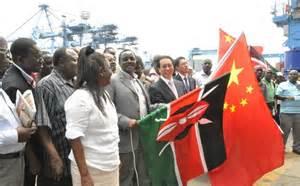Zhao Pei, editor of International Review at the school of international relations and public affairs of Shanghai International Studies University said in his articles China-backed projects meet demands of Africa that with the development of the Belt and Road initiative and the deepening cooperation between China and Africa, the infrastructure projects planned by the two sides have been mushrooming across the African continent.
It can be expected that over a long period in the future, African nations' demand for infrastructure services will increase sharply. Projects including hydropower stations, railways and highways in which China has been investing and building not only meet Africa's current demand, but will also fulfill the continent's medium and long-term demand. That being said, accusations by Western media - China's infrastructure projects in Africa are beyond the latter's needs, China is increasing the debt burden of African countries - are ridiculous.
The following is the full text of the article:
With the development of the Belt and Road initiative and the deepening cooperation between China and Africa, the infrastructure projects planned by the two sides have been mushrooming across the African continent.
This summer, I spent over a month researching in Djibouti, Uganda and Zimbabwe, observing the infrastructure construction projects as well as their economic and social effects. I found that a large number of projects such as the Addis Ababa-Djibouti Railway, the Karuma Hydroelectric Power Station in Uganda, the ongoing expansion and upgrade of Entebbe International Airport and the Kariba South hydropower expansion project have been either completed and started operations or are near the completion stage.
They are highly appreciated and generally welcomed in these countries. At the same time, however, some projects' loads are lower than the standard they had been designed for, and the revenue from them is yet to be maximized. For instance, the Addis Ababa-Djibouti Railway began commercial operations on January 1, 2018. So far, the amount of goods and passengers transported on the railway has not reached the desired level.
Some Western media outlets have already made a big issue out of it, disregarding common sense: When designing major infrastructure construction projects, people must think one step ahead. When building current infrastructure, the demands of the public in decades to come or in the future 100 years must be taken into account. For instance, once a major railway is built, it will be extremely difficult to broaden it out or expand its carrying capacity.
Over the past few years, Africa's previous wars and internal conflicts have been effectively curbed. African countries have generally achieved political stability and rapid economic growth. "The continent achieved average real annual GDP growth of 5.4 percent between 2000 and 2010," said a 2016 report by the World Economic Forum, adding that growth slowed to 3.3 percent between 2010 and 2015 due to the sluggish global economy. But 3.3 percent is still higher than average world GDP growth. African governments have been focusing on development and that's why the continent is becoming more prosperous.
It can be expected that over a long period in the future, African nations' demand for infrastructure services will increase sharply. Projects including hydropower stations, railways and highways in which China has been investing and building not only meet Africa's current demand, but will also fulfill the continent's medium and long-term demand. That being said, accusations by Western media - China's infrastructure projects in Africa are beyond the latter's needs, China is increasing the debt burden of African countries - are ridiculous.
Earlier this year, former US secretary of state Rex Tillerson warned African countries to be careful not to forfeit their sovereignty when they accept loans from China. Yet in the 19th century, Europe once loaned substantial quantities of money to the US to help it build its railway network. Why was no American worried about forfeiting their sovereignty? In 1994, when the first Eurostar train started its journey, it was criticized for high fares and few passengers. But now it has become an arterial route connecting the UK and mainland Europe.
Of course the financial state of some African countries is not good with large foreign debt. Therefore it is necessary to properly look at their debt burden. For that reason, during this year's Beijing Summit of the Forum on China-Africa Cooperation, China announced increased interest-free loans and concessional loans to the continent. Meanwhile Beijing also set up a $10 billion special fund for development financing and a $5 billion special fund for financing imports from Africa so as to help African countries optimize their economic and financial structure through more flexible financing.
Consecutive China-Africa joint infrastructure projects have been established. They not only meet the continent's demand for electricity, energy, transportation, information and communication, but are also becoming the driving force for local development.




 A single purchase
A single purchase









